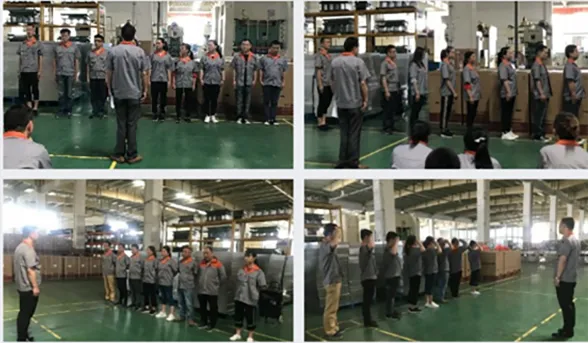cargo rollers
Understanding Cargo Rollers An Essential Tool for Efficient Transportation
Cargo rollers, often referred to as freight rollers or conveyor rollers, are vital components in the logistics and transportation industry. These devices facilitate the smooth movement of goods and materials across various surfaces, significantly enhancing workflow efficiency in warehouses, distribution centers, and manufacturing plants. In this article, we will explore the purpose, types, advantages, and applications of cargo rollers, illustrating their contribution to modern transportation systems.
The Purpose of Cargo Rollers
Cargo rollers are designed to enable the easy movement of heavy and cumbersome loads. By utilizing a system of cylindrical rollers, these devices reduce friction and allow goods to glide smoothly from one point to another. This is particularly useful in environments where manual handling is impractical, such as in the case of heavy pallets or bulky items. By making it easier to move cargo, these rollers contribute to the overall efficiency of the supply chain, ensuring that products are delivered on time and with minimal physical strain on workers.
Types of Cargo Rollers
There are several types of cargo rollers, each suited for specific applications
1. Gravity Rollers These are the simplest form of rollers and rely on gravity to move items down an incline. They are commonly used in conveyor systems where goods need to be moved between different levels.
2. Powered Rollers Unlike gravity rollers, powered rollers are equipped with motors that facilitate movement. These rollers can be adjusted to accommodate various speeds and load capacities, making them suitable for diverse operational needs.
3. Specialized Rollers Some cargo rollers are designed for specific industries or applications, such as those that handle very heavy loads, delicate items, or hazardous materials. These customized solutions are crucial for ensuring safe and efficient handling.
Advantages of Using Cargo Rollers
The implementation of cargo rollers provides numerous benefits
- Increased Efficiency Cargo rollers streamline the transportation process, allowing for faster handling of goods. This can lead to shorter shipping times and enhanced productivity.
cargo rollers

- Reduced Labor Costs By minimizing the physical effort required to transport goods, businesses can lower labor costs and reduce the risk of workplace injuries.
- Enhanced Safety With proper roller systems in place, the likelihood of accidents caused by manual handling decreases, fostering a safer working environment.
- Versatility Cargo rollers can be integrated into various systems and adapted to different types of materials, making them a flexible solution for many industries.
Applications of Cargo Rollers
Cargo rollers find applications in various sectors, including
- Warehousing In warehouses, cargo rollers are often used in shelving systems and conveyor belts to move products efficiently from storage to packing areas.
- Manufacturing Factories utilize cargo rollers to transport components along assembly lines, enhancing production speeds and workflow.
- Retail In retail environments, cargo rollers help in moving stock from delivery trucks to shelves, streamlining inventory management.
- Logistics Distribution centers rely on cargo rollers to handle packages and freight efficiently, reducing bottlenecks and improving delivery times.
Conclusion
In summary, cargo rollers are indispensable tools in the modern transportation and logistics landscape. Their ability to simplify the movement of goods, reduce labor costs, and enhance safety makes them essential for businesses aiming to improve their operational efficiency. As industries continue to evolve, the role of cargo rollers will remain pivotal in shaping the future of logistics and supply chain management. By investing in quality cargo roller systems, companies can ensure they remain competitive in an increasingly fast-paced market.
-
Unlock Seamless Relocation with Our Heavy Equipment Moving ExpertiseNewsJun.06,2025
-
Unleash Unrivaled Flexibility with Our Adjustable Gantry CraneNewsJun.06,2025
-
Unleash Heavy-Duty Efficiency with Our Industrial Gantry Crane SolutionsNewsJun.06,2025
-
Revolutionize Steel Handling with Our Magnetic Lifter RangeNewsJun.06,2025
-
Master Equipment Mobility with Premium Machinery Mover SolutionsNewsJun.06,2025
-
Elevate Your Material Handling with Magnetic Lifter TechnologyNewsJun.06,2025
-
YS Permanent Lifting Magnets: The Smarter Way to Handle SteelNewsMay.22,2025
